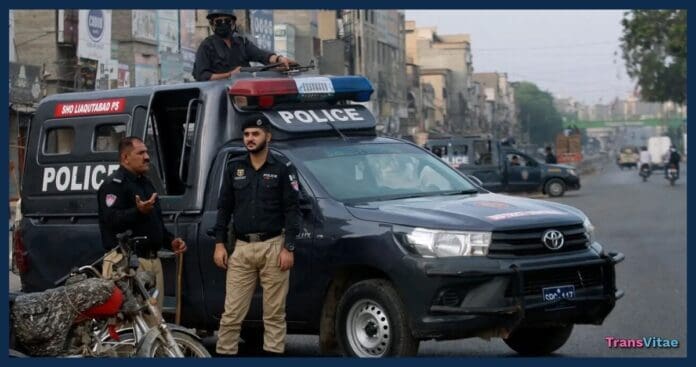The bodies of three transgender individuals were discovered early Sunday in Karachi’s Memon Goth area, each bearing gunshot wounds that left little doubt about the brutality of the attack. Two had been shot in the chest, another in the head. The killings, carried out on a quiet roadside, have shaken Pakistan’s already vulnerable transgender community and reignited calls for action against rising violence.
Police reported that the victims, later identified as Aini, 20, from Sheikhupura; Sameera, 28, from Khairpur; and another known as Asma, were found with no documents or mobile phones, making immediate identification difficult. Forensic teams recovered two 9mm pistol casings at the scene, along with a torch and other belongings. Investigators are now searching for witnesses and combing through CCTV footage from nearby areas, though no cameras directly covered the site of the crime.
Authorities insist they are treating the case with urgency. Sindh Chief Minister Syed Murad Ali Shah called transgender citizens “a vulnerable segment of society” and vowed that those responsible would be arrested “at all costs.” Police say fingerprints have been collected, autopsies are underway, and additional leads are being pursued.
For many in Pakistan’s transgender community, however, these promises sound all too familiar. Human rights groups and activists point out that violence against trans people is not new but part of a troubling pattern of abuse and neglect. The Gender Interactive Alliance condemned the killings, warning that such attacks are often intended to terrorize and silence the community. Despite the existence of Pakistan’s 2018 Transgender Persons (Protection of Rights) Act, which was initially praised as a landmark law, enforcement has faltered and protections have been eroded through legal and political challenges.
The murders in Memon Goth highlight the gap between law and lived reality. On paper, Pakistan recognizes the rights of transgender people, but in practice, stigma and discrimination often leave them unprotected. Many attacks go unreported, either because victims fear retaliation or because they do not trust authorities to take their cases seriously. Activists argue that social prejudice, hate speech, and weak institutional support make transgender people perpetual targets.
This latest tragedy underscores a broader truth: without systemic reform, the cycle of violence will continue. Investigations may bring arrests, but accountability requires more than short-term justice. It demands stronger enforcement of existing protections, greater public awareness to combat stigma, and genuine political will to treat transgender lives as equal and valued.
As the investigation in Karachi moves forward, Pakistan’s trans community mourns yet again, grieving not just for the three lives lost, but for the reminder that their safety remains precarious. The killings have become a rallying point, a demand for change that goes beyond rhetoric. For many, the question is not whether justice will be served this time, but whether the country is prepared to protect its most marginalized citizens in the long term.


